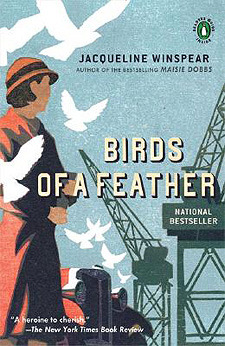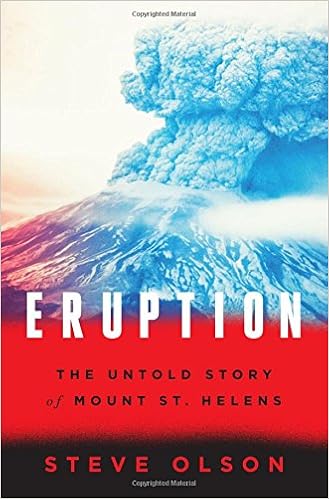The seventeenth book I read in 2016 was
A Charlie Brown Religion: Exploring the Spiritual Life and Work of Charles M. Schulz by Stephen J. Lind. I think every American who grew up between the '60s and the '90s has been influenced by the Peanuts gang in some way, either through the animated specials or through the comic pages. I had an extra interest in the man, as he was born in the same town as my father and later lived in the same town as my aunt and a cousin's family, and a pastor I worked with while at seminary was a huge Peanuts fan whose office was full of collectibles and who worked strips into his sermons.
"A Charlie Brown Christmas" is unique among the Christmas specials for its explicit references to the religious origins of the holiday, and I already knew the story of how Schulz took a firm stand about including Linus's reading from the gospel of Luke; yet it always seemed clear to me that sometime between the making of that first special and "It's the Great Pumpkin, Charlie Brown," something had soured in Schulz's mind and heart in regard to faith. In the Christmas show, Linus is the expert, the one who can flatly say, "That's what Christmas is all about, Charlie Brown," but by the Halloween special, he is a quixotic figure who believes something no one else believes, suffers socially as a result, and mistakes a beagle for the long-awaited mythical creature who never responds to his sincerity. Events in Charles Schulz's life parallel this fictional crumbling of belief.
Schulz's faith journey began in St. Paul, Minnesota, after his return from service in World War II. While attending a Church of God, he claimed Christianity, though it is notable that he never described a point of decision nor was he ever baptised. He became an integral part of the small congregation, however, and was eager to use his skill at comics for the benefit of the church, drawing single-panel quips for Christian publications. Enjoying a close relationship with the pastors and serving on the board, he seemed likely to become a pillar of the local congregation.
However, Schulz married a woman with no interest in religion and with a two-year-old daughter who had been abandoned by the father, her then-husband. Lying about their wedding date to pass the girl off as Schulz's biological child, they decided it would be easier to cover up the truth if they moved away and left behind anyone who knew them at the time of their marriage. Thus, they ended up in California. Schulz began attending a United Methodist church -- alone. His wife stayed home and encouraged their five children to as well. Interestingly, Schulz taught a Sunday School class there for years but never joined the church and rarely stayed for the service. Although he studied the Bible extensively at home, he never spoke to his own children about his faith, not wanting to come across as pushy. The few who became religious as adults knew nothing about their father's spirituality.
By 1970, Schulz was having an affair with a woman half his age. By 1971, he had stopped attending church. When your own behavior doesn't match the standards you've espoused, you must either abandon your standards or your belief in your own goodness. By 1972, Schulz was divorced, and in 1973, he married a woman who brought her daughter to his ice rink, she having left her own husband and her daughter's father. What happened to the woman from 1970? Who knows? By 1989, he was describing himself as a secular humanist and insisting that people get to heaven by doing good rather than by putting their faith in Christ.
So was Charles Schulz ever an orthodox Christian, or did he just get off on being praised as a good man? After World War II, being a Christian was synonymous in Middle America with being a good person. Was it just shorthand in his mind for works-righteousness? As an aside, the pastor famous for writing
The Gospel According to Peanuts in 1965 himself departed orthodox Christianity in favor of universalism. When Schulz was diagnosed with terminal cancer in 1999 at age 77, he felt cheated, his plans for the long and healthy retirement he expected to enjoy spoiled. As of 1995, he professed no firm hope in an afterlife.
I've compiled this sequence of events from the book under review, only with difficulty. Lind jumps around topically rather than chronologically, making it difficult to align the events in Schulz's life with developments in theological content in his work. The author also insists that Schulz did
not lose his religion on the evidence that there were as many biblical quotes in his strips toward the end of his career as at the beginning, showing no sensitivity to the difference between Linus quoting the gospel story sincerely and Marcie quoting an obscure passage from the historical books of the Old Testament ironically.
Organization issues aside, I did not enjoy this book for the same reason I didn't enjoy
Dick Van Dyke's memoir: because a man revered by many truly had a sad life. Many would think Charles Schulz had a great life: he was rich and famous and well-respected both in his profession and by the general public. But from an outside perspective, he seemed to have gained the world by losing his soul. He became cynical, embarrassed by the certainty he once professed in his faith, smug in his own sense of himself as a good man, and devastated by facing the end of the life he had built on a foundation of sand. I can only hope that as he faced a death that all his good deeds could not put off, he remembered the words he wrote to a old army buddy in 1948: "I am a firm believer in Jesus Christ."
















